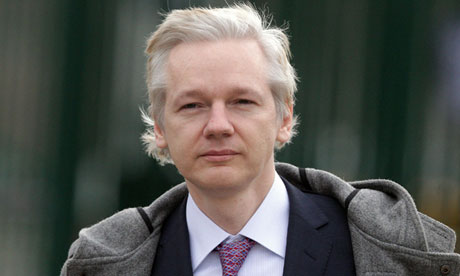WikiLeaks founder Julian Assange said he hoped a UN panel’s decision expected on Friday could lead to the end of his confinement in the Ecuadorean embassy in London.
A UN panel said Friday that WikiLeaks founder Julian Assange should be able to walk free from Ecuador's embassy in London after nearly four years of "detention," stoking his hopes of wrapping up the case.
The panel added that the 44-year-old Australian should be able to claim compensation from Britain and Sweden, where he faces questioning over a rape allegation, after being "arbitrarily detained."
But both countries quickly dismissed the non-binding legal opinion, with Britain's Foreign Secretary Philip Hammond calling it "ridiculous" and Sweden's foreign ministry saying the panel had no right to "interfere."
Assange walked into the embassy in June 2012 to avoid the threat of arrest and extradition to Sweden.
He has lived there ever since in a small office room with a bed, computer, sun lamp, treadmill and access to a small balcony.
In a statement, the panel said it had adopted an opinion "in which it considered that Mr. Julian Assange was arbitrarily detained by the governments of Sweden and the United Kingdom of Great Britain and Northern Ireland."
It added: "The working group also considered that the detention should be brought to an end and that Mr. Assange should be afforded the right to compensation."
Following its release, there was no sign of Assange at the embassy, located near the Harrods department store in London's exclusive Knightsbridge district, although a police van arrived outside.
His lawyers are set to hold a press conference in London at 1200 GMT.
Earlier, he hoped that the panel decision could lead to the end of his confinement in the Ecuadorean embassy .
"Should I prevail and the state parties be found to have acted unlawfully, I expect the immediate return of my passport and the termination of further attempts to arrest me," the Australian national said in a statement.
Assange fears that, if detained, he could be extradited to the US be tried over the publication of hundreds of thousands of classified documents.
WikiLeaks filed a complaint against Sweden and Britain to the UN group in September 2014, saying his confinement in the embassy was unlawful.
Founded by Assange in 2006, WikiLeaks has infuriated the United States by releasing some 500,000 secret military files on the wars in Afghanistan and Iraq and 250,000 diplomatic cables.
The main source of the leaks, US Army soldier Chelsea Manning, was sentenced to 35 years in prison for breaches of the Espionage Act.